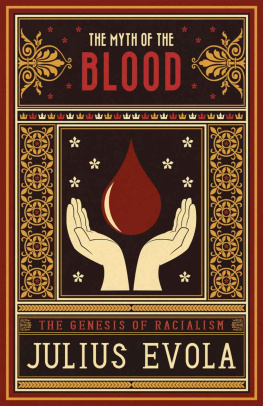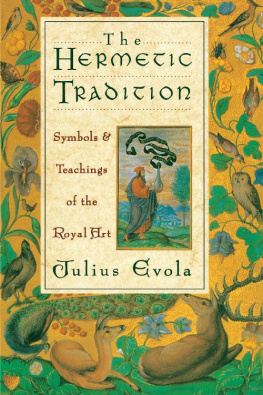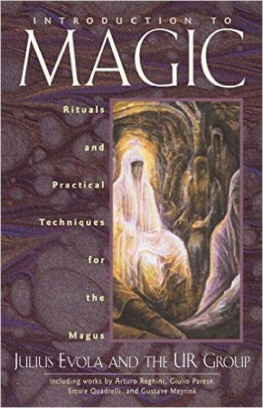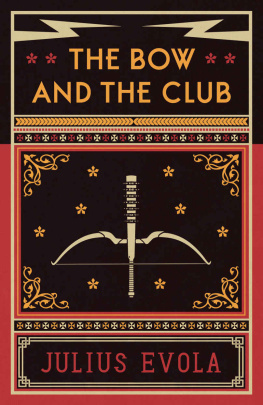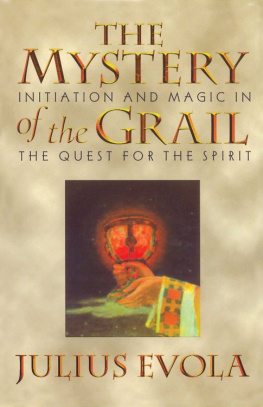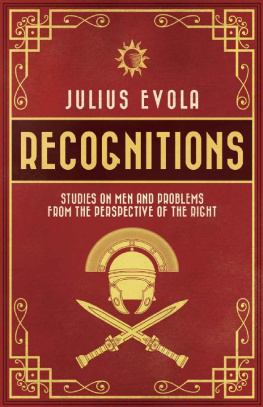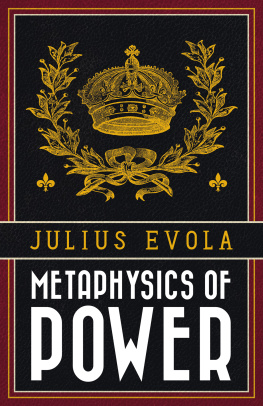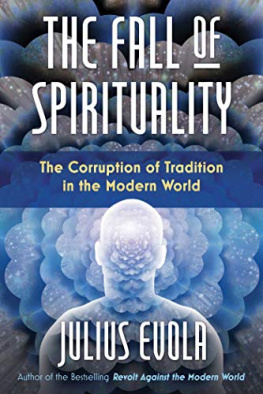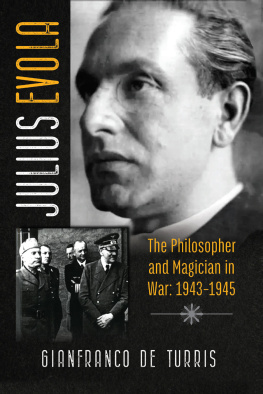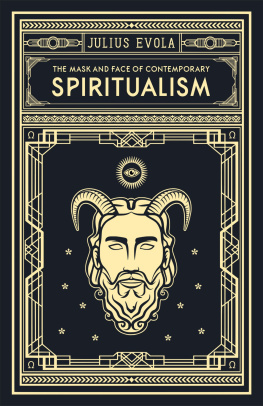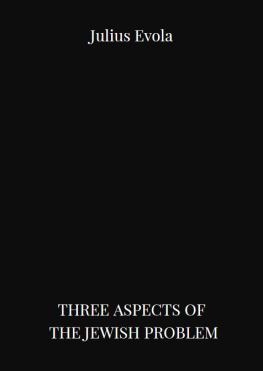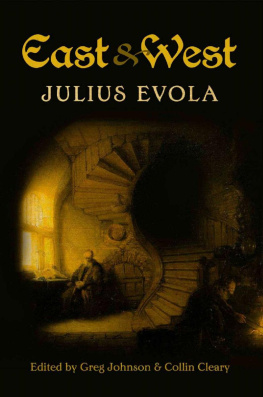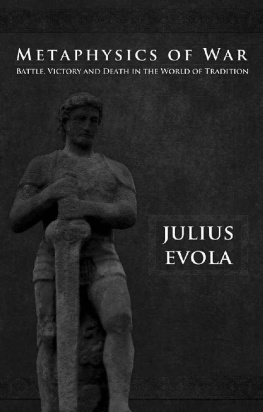Julius Evola - The Yoga of Power
Here you can read online Julius Evola - The Yoga of Power full text of the book (entire story) in english for free. Download pdf and epub, get meaning, cover and reviews about this ebook. year: 2018, publisher: Inner Traditions / Bear & Company, genre: Science fiction / Religion. Description of the work, (preface) as well as reviews are available. Best literature library LitArk.com created for fans of good reading and offers a wide selection of genres:
Romance novel
Science fiction
Adventure
Detective
Science
History
Home and family
Prose
Art
Politics
Computer
Non-fiction
Religion
Business
Children
Humor
Choose a favorite category and find really read worthwhile books. Enjoy immersion in the world of imagination, feel the emotions of the characters or learn something new for yourself, make an fascinating discovery.

- Book:The Yoga of Power
- Author:
- Publisher:Inner Traditions / Bear & Company
- Genre:
- Year:2018
- Rating:4 / 5
- Favourites:Add to favourites
- Your mark:
- 80
- 1
- 2
- 3
- 4
- 5
The Yoga of Power: summary, description and annotation
We offer to read an annotation, description, summary or preface (depends on what the author of the book "The Yoga of Power" wrote himself). If you haven't found the necessary information about the book — write in the comments, we will try to find it.
The Yoga of Power — read online for free the complete book (whole text) full work
Below is the text of the book, divided by pages. System saving the place of the last page read, allows you to conveniently read the book "The Yoga of Power" online for free, without having to search again every time where you left off. Put a bookmark, and you can go to the page where you finished reading at any time.
Font size:
Interval:
Bookmark:
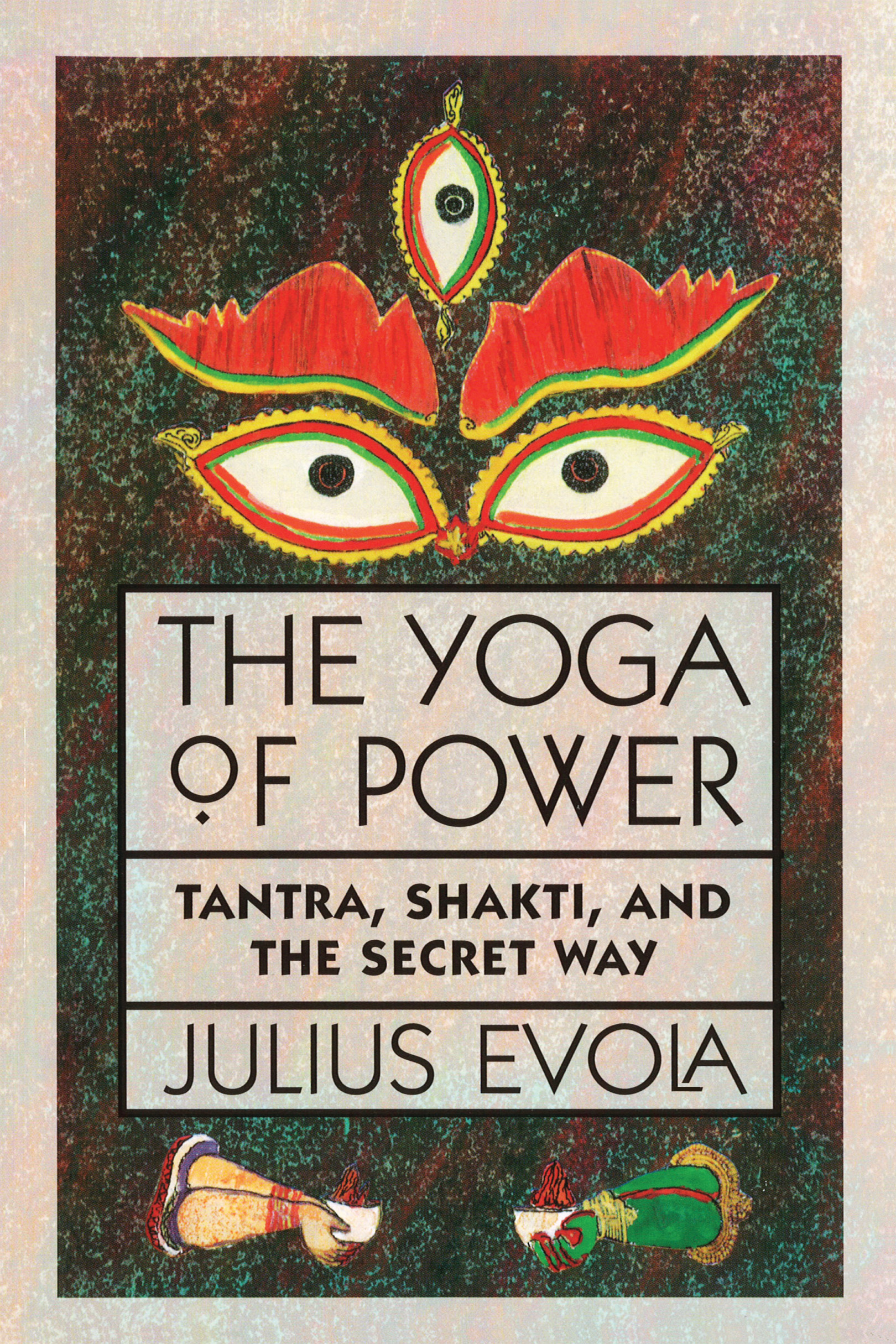
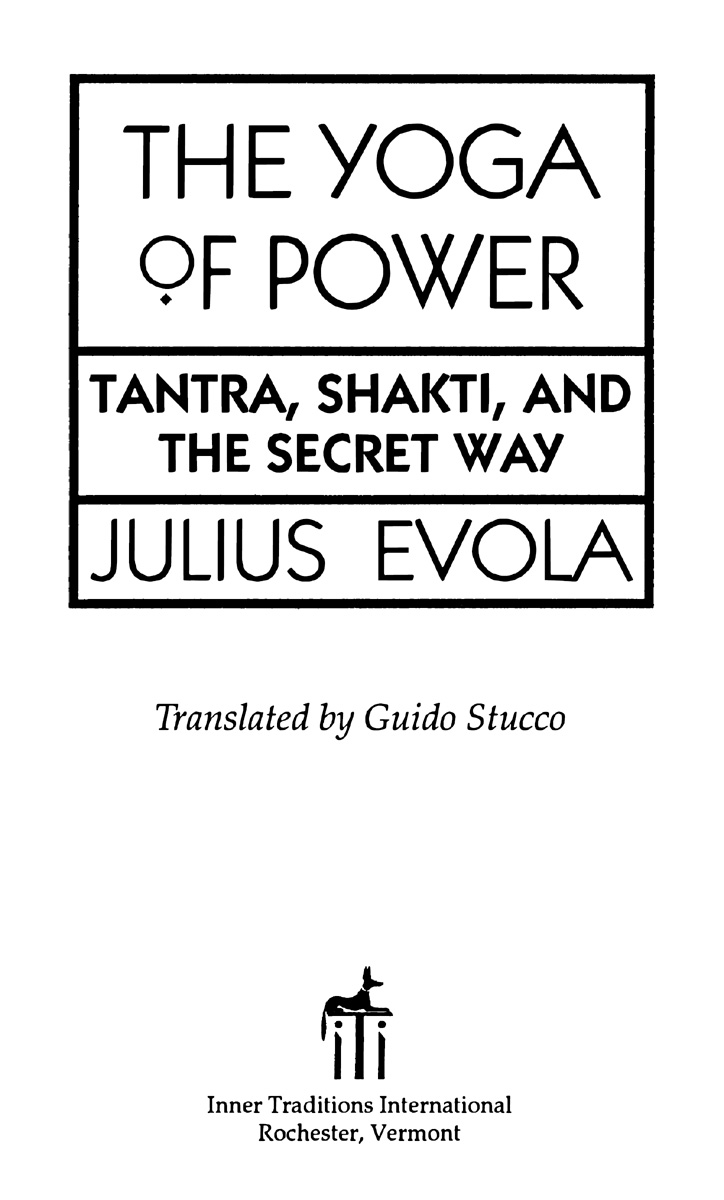
I wish to dedicate this translation to my two lovely daughters, Giuliana and Michela.
TRANSLATOR'S ACKNOWLEDGMENTS
I would like to thank the following people, who have contributed to this translation with their encouragement and technical assistance:
My father, who first taught me English as a child, for finding the time and the patience to assist me in the translation of the Conclusion. I love you.
Susan Pitol, for going over the rough edges of some parts of my translation, though she had a busy schedule. Your help was greatly appreciated.
David Shocklee, Reference Librarian at St. Louis University, for locating and providing me with much-needed interlibrary loans. Your speed and patience with my constant requests makes you, in my eyes, the greatest in your profession.
Ehud Sperling, president of Inner Traditions, for his commitment to publish and to popularize the controversial thought of Julius Evola. You are an anticonformist, an open-minded thinker, and a courageous publisher.
Larry Hamberlin, for providing good insights and doing a great editing job. You know your subject matter inside and out.
TRANSLATOR'S INTRODUCTION
The name of the Italian thinker Julius Evola (18981974) is virtually unknown within the American academic community. To the best of my knowledge, only two American scholars have so far analyzed Evola's thought: Thomas Sheehan, who first wrote about him from a philosophical perspective, and Richard Drake, who wrote from a political and historical perspective.
Considering both the remarkable consistency and spissitudo spiritualis of Evola's thought, and the revival of interest his work has enjoyed in Europe during the past decade, much work needs to be done in North America to bridge this cultural gap. My modest contribution to the popularization of Julius Evola will be limited here to the religious and spiritual implications of his worldview, which so far have been neglected by critics and supporters alike, eager as they are to focus on the political and ideological ramifications of his thought.
Giulio Cesare Andrea Evola was born in Rome on May 19, 1898, to a noble Sicilian family. During his adolescence, while pursuing a high school diploma in industrial engineering, he developed a keen interest in contemporary literature and art. As he recalled in his intellectual autobiography, Il cammino del cinabro [1963, 1972, The cinnabar's journey], his favorite pastimes consisted of painting, one of his natural talents, and of visiting the library as often as he could, in order to read works by Oscar Wilde, Friedrich Nietzsche, and Otto Weininger.
When Italy, following the outbreak of World War I, declared war against its former allies Germany and Austria-Hungary, Evola, who did not appreciate this "betrayal," wrote a bold article in a Roman newspaper suggesting that Italy's participation in the war should not have been dictated by nationalistic, democratic, or irredentist concerns. Its publication marked the beginning of Evola's career as an antidemocratic and nonconformist writer.
At the age of nineteen Evola joined the army and participated in the conflict as a mountain artillery officer. An existing photo shows him in his impeccable uniform, with an aristocratically nonchalant look on his face, while on duty at the front on the Asiago plateau, in northern Italy. Though he admitted that he was never involved in significant military operations, his experiences in that mountainous environment, such as climbing, the inner feelings during the ascent, the silence and solitude of the peaks, and the bird's-eye view of the valleys below, made a deep and long-lasting impression on him. He wrote several essays between 1930 and 1942 on what he called the "mystical dimension" of mountain climbing. He also gave instructions that, after his death, the ashes of his cremated body be dispersed from the top of a mountain. A team of disciples, led by two local guides, buried them instead in a glacier on Monte Rosa, forty-two hundred meters above sea level.
The first few years of Evola's life following the end of the war were characterized by spiritual restlessness and by an intense search for an ideological self-identity. Evola began a personal quest for ultimate transcendence, which he believed could be found beyond the ethical and spiritual limitations of bourgeois prejudices. That quest, characterized by Evola's contempt for what is "all too human" (to use an expression dear to Nietzsche) and for daily routines, led him first to dada, the artistic avant-garde movement founded in Zurich by the Romanian artist Tristan Tzara. Thus Evola became a chief representative of the short-lived, canon-breaking Italian dadaist experience. One of his oil paintings of this period, Inner Landscape, 10:30 a.m., is hanging today on a wall of the National Gallery of Modern Art in Rome.
At this time his quest led him also to experiment with hallucinogenic drugs. His longing for the Absolute, for radically intense feelings, for what the Germans call mehr als leben, ("more than living") This text was also instrumental in Osbert Moore's (19051960) conversion to Buddhism. Moore, who took the name Nyanamoli Bhikkhu, became a celebrated Pali scholar and translated several Theravadin texts into English.
Between 1923 and 1927 Evola divided his time between the university and an intense schedule of readings in post-Kantian idealist philosophy. He almost completed his undergraduate studies in engineering, but stopped short of getting a degree because of his dislike of academic titles. In these works Evola adopted the categories of freedom, action and will as his main hermeneutical tools. He also took issue with both realism, which posits the objective existence of the world, and with metaphysical idealism, especially with its Italian trajectories of Benedetto Croce's absolute historicism and of Giovanni Gentile's absolute subjectivism, which see the ego as passive in relation to the world.
Evola's philosophy is based on Arthur Schopenhauer's statement that "the world is my representation," and on Stirner's rejection of entities such as "God" and "humanity." whereby the individual stands alone in a world of maya, in which nature, things, and people are nothing but an illusion. He also postulated the experience of a pure Self, which an individual may or may not experience. This Self is conceived as a pure, self-centered being, which is known in Hindu metaphysics as atman and in Greek philosophy as nous. While according to these systems this Self is an ontologically given reality present in all human beings, according to Evola it is present only conditionally, as a project or as a task to be fulfilled. This was his view of the Absolute Individual (from the Latin ab-solutus, "freed from").
Following these philosophical works, Evola turned his interest elsewhere. In La Tradizione ermetica [1931; The hermetic tradition], which according to some should be regarded as the apex of his writing career, Evola expounded the inner and esoteric core of medieval Hermetic and alchemical doctrines; these form the so-calledars regia, which is the end product of pre-and non-Christian spiritual traditions. This work did not go unnoticed by C. G. Jung, who commended it as a "detailed account of Hermetic philosophy." Jung also quoted Evola to support his own contention that "the alchemical opus
Font size:
Interval:
Bookmark:
Similar books «The Yoga of Power»
Look at similar books to The Yoga of Power. We have selected literature similar in name and meaning in the hope of providing readers with more options to find new, interesting, not yet read works.
Discussion, reviews of the book The Yoga of Power and just readers' own opinions. Leave your comments, write what you think about the work, its meaning or the main characters. Specify what exactly you liked and what you didn't like, and why you think so.

